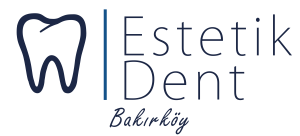Aphthae are very painful ulcerated lesions surrounded by pale yellow-red halo in the mouth, often on the cheek and lip mucosa, on the tongue, soft palate, pharynx, and gingiva. 18-20% of the society is faced with more or less aphthae problem. It is more common in women. Although aphthae usually watch alone, it can be seen in several regions at the same time.
A lot of research has been made to define the reason for the accruement of the Aft. However, although many factors have been determined that accelerate the formation of aphtha and worsen its course, the reason for its occurrence has not been determined exactly.
For this reason, it is possible to talk about factors that accelerate the formation of aphtha and delay its healing.
Which factors are important in formation of aphta lesion.
STRESS
Today, stress, which is considered among the causes of many diseases such as migraine, high blood pressure and gastritis, is one of the most important causes of aphthae.
Premenstural tension (premenstrual period) is also one of the factors that accelerate the formation of aphtha in women.
FOOD
Foods that can irritate the oral mucosa such as citrus fruits, vinegar, pickles, potato chips, salty and spicy snacks are among the important factors that accelerate the formation of aphthae. In addition to these, black wheat, rye, barley, chocolate, hazelnut, shellfish, Foods such as soy, tomato, some eggplant, apple, fig and cheese accelerate the formation of aphthae.
TRAUMA
Cheek, tongue, lip biting, irritation of hard foods and brushing teeth that are not soft and bumps caused by poorly adapted prostheses help to create a suitable base for aphthae.
TOOTH PASTE
“Sodium lauryl sulphate” (SLS), which is added to toothpaste as a foaming agent to increase the cleaning properties, is an irritant chemical that increases the destruction of mucous cells. With this feature, SLS is a substance that directly affects the formation of aphthae.
Especially for people with aphthae problems, toothpastes containing less SLS (1.25%) are produced today.
Behçet’s Disease: It is a disease that manifests itself with many systemic symptoms such as genital ulcer, conjunctivitis, retinitis, leukocytosis, as well as recurrent aphthae in the mouth.
Recurrent aphthae can be seen with many malignant and autoimmune diseases.
OTHER CAUSES
It is known that habits such as vitamin B12 and iron deficiency, smoking and chewing tobacco are also important factors contributing to the formation of aphthae.
Treatment
Although aphthae are not treated, they usually heal spontaneously after 7-10 days. It is possible for those who are faced with aphtha problem to have a more comfortable period when they apply one or more of the procedures listed below:
To reduce pain and shorten the recovery period:
Hot, acidic and irritating foods should be avoided.
The aphthous area can be cleaned with cotton or gauze soaked in “2% hydrogen peroxide” solution.
A fine cream prepared from a mixture of water and carbonate can be applied on aphthae.
You can gargle three times a day with the solution obtained by adding half a spoonful of salt to half a glass of water.
Before meals, “xylocaine” solution or oral anesthetic creams can be applied to the aphthae area.
Oral creams such as “orabase”, “Gly-oxide”, “Cankaid”, “Ambesol” to be applied on aphthae can be applied, “sucralfate” tablet can be dissolved in warm water and gargle.
Especially in the initial phase of the aphthae, gargling with the solution obtained by dissolving the “tetracycline” tablet in water prevents overgrowth of the aphtha and reduces pain.
Again, in the initial phase of the aphthae, applying a topical steroid “0.1% triamcinalone” or gargling with a steroid gargle “betamethasone syrup” prevents the aphta from overgrowth and reduces pain.
“Chlorhexadine” mouthwash shortens the healing period.
A mixture of 12,500 units of “nystatin”, 1.25 mg of “diphenhydramine”, and 0.25 mg / m of “hydrocortisone” prepared with “tetracycline” syrup can be used as a ‘shotgun’ solution.
Differences between AFT and FLIGHT:
Aphthae and herpes can be confused with each other because they usually show the same symptoms. However, there are several fundamental differences between them:
AFT
1. It definitely occurs in the mouth.
2. It is not contagious.
3. Viruses do not cause aphthae to form.
PALE
1. It begins as blisters.
2. Although they are rarely in the mouth, they usually occur outside of the mouth. Although aphthae can occur in all areas in the mouth, herpes usually involves inactive areas such as the roof of the palate in the mouth.
3. It is contagious.
4. It is caused by viruses.
